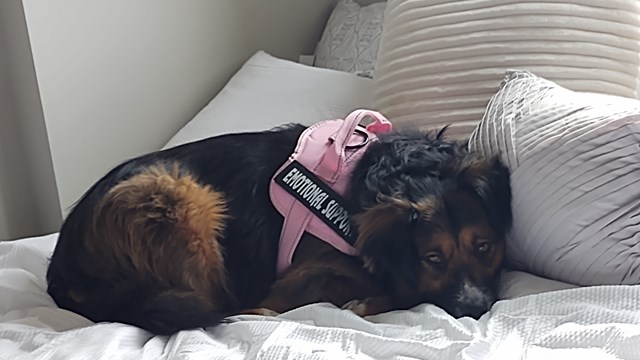
Q. I sit on the board of directors of a Nassau County cooperative. The building has a no-pets policy that residents are obliged to comply with. A few residents have cats that were grandfathered in prior to rules changing. On occasion, we’ve had residents claim they require a comfort dog—but the credentials provided to support the claim have been online ‘registrations’ with no substantial proof beyond that. My question is, what is the criteria for someone to have a comfort dog? Can we ask for a doctor’s certificate, or at least something more than a boilerplate internet registration? If someone’s dog does not meet requirements, what is the board’s recourse to have the dog removed?
—Not Comfortable With Comfort Animals
A. Heather Stiell, Esq., senior counsel at Lasser Law Group, PLLC, a real estate law firm serving New York City, Long Island, and Westchester, says, “Comfort animals, also sometimes called emotional support animals (ESAs), are considered a form of accommodation for persons who have a mental or emotional disability that affects their ability to function in their housing environment. The federal Fair Housing Act and New York State Human Rights Law both require that housing providers allow a ‘reasonable accommodation’ to any person with a disability that disrupts their functioning in the housing environment or prevents them from full use and enjoyment of their housing.
“In order to verify that a resident requesting an accommodation has a disability and that an ESA is necessary, boards or landlords can request documentation to support the claimed disability and the need for an ESA, including requiring that a letter from a licensed mental health professional treating the individual be provided. Internet registration that does not include reliable documentation of a disability can be deemed insufficient by a board.
“If a resident’s animal does not meet the legal criteria to qualify as an ESA, the board can issue violations and levy fines against the resident, if provided for in the building’s proprietary lease or house rules. Ultimately, for continued violations, the board could elect to terminate the resident’s proprietary lease and cancel his or her stock certificate.
“However, because an unfounded or incorrect determination could expose a board to a federal or state discrimination complaint and liability for civil penalties and damages, it is recommended that boards have ESA requests reviewed by their co-op’s attorney to help avoid potential discrimination claims.”









3 Comments
Leave a Comment